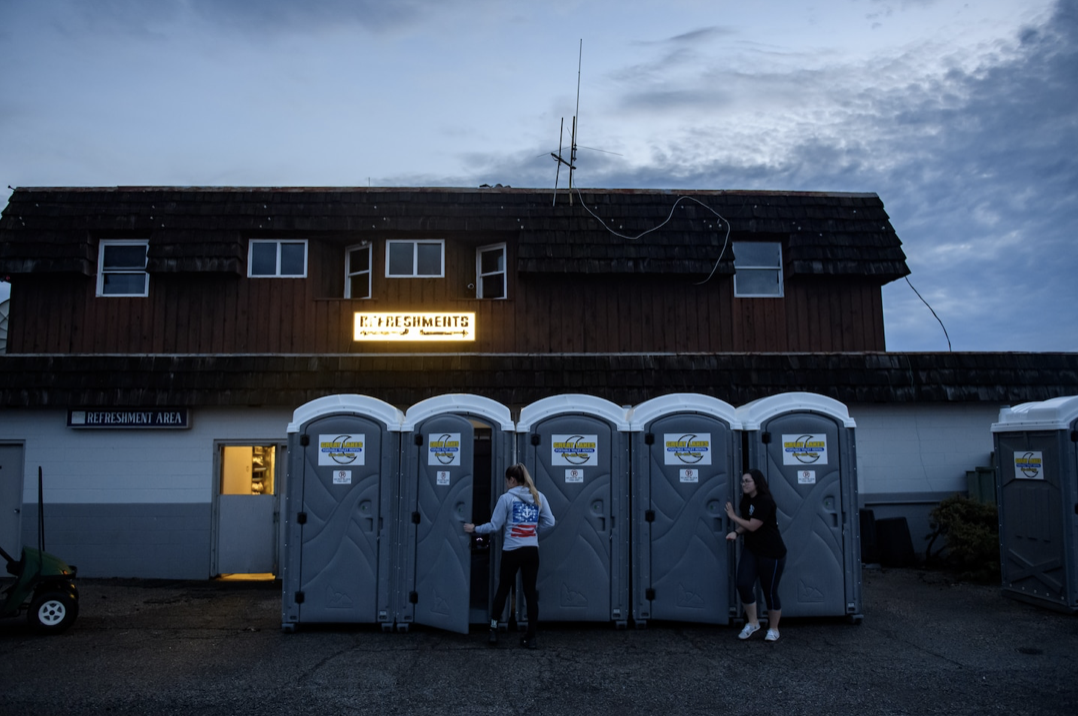By: – washingtonpost.com – May 18, 2020
Whether it’s the mall, restaurants, concerts, ballparks or even drive-in movie theaters, Americans are making it clear: They won’t be ready to go out to their favorite destinations until they feel confident about being able to go.
To the bathroom, that is.
The idea of a return to life in public is unnerving enough for many people. But it turns out that one of the biggest obstacles to dining in a restaurant, renewing a doctor’s appointment or going back to the office is the prospect of having to use a public restroom — a tight, intimate and potentially germ-infested space.
It’s a hurdle vexing many business owners as they prepare to reopen in a time of social distancing, reduced capacity and heightened anxiety about the very air we breathe.
A Texas barbecue restaurant reopened only after hiring for a new job category: a bathroom monitor, who assures that people waiting their turn are spaced well apart. In Florida, malls are installing touch-free sinks and hand dryers in restrooms before opening their doors. McDonald’s is requiring franchisees to clean bathrooms every 30 minutes. Across the country, businesses are replacing blow dryers with paper towels, decommissioning urinals that now seem too close together, and removing restroom doors to create airport-style, no-touch entrances.
In San Luis Obispo, Calif., the Sunset Drive-In held back from reopening even though the health department gave it the green light because the owner needed time to figure out how to address customers’ concerns about catching the novel coronavirus in the bathroom.
“Before we open, we want to have the restroom problem solved for your safety,” the owner, Larry Rodkey, wrote on Facebook. “Sitting through approximately five hours of movies is a necessity for the enjoyment of the Drive-In.”
The theater reopened over the weekend with extra employees to disinfect the bathrooms every 30 minutes and limits on queuing up.
The Aut-O-Rama Twin Drive-In theater in North Ridgeville, Ohio, reopened this week with 10 portable toilets added to the eight existing stalls, even though movie attendance was limited to 25 percent of the usual capacity. On its marquee facing the highway, the theater touted the advantages of outdoor, in-car movie watching: “Social Distancing Since 1965.”
Owner Deb Sherman has instituted new policies, leaving plenty of space between cars, requiring masks and enforcing six-foot distancing in the restrooms.
“Anyone not following established safe policies set forth may be asked to leave the theatre without a refund,” the policy reads.
She doubled her staff from 10 to 20 to keep queues to a minimum and let customers see that someone was constantly disinfecting the restrooms and concessions stand.
“If we can give them some confidence about safety, people are ready to get out of the house and try and have a little more normal life,” she said. “The restroom situation didn’t bother me personally, but it was the number one concern people had on our Facebook page, so I had to take action to make them comfortable.”
Such comfort might be hard-won. Laura Maxwell is eager to find an entertainment option that would let her take her children, ages 11 and 13, out of the house safely. Maxwell, who lives in San Luis Obispo, would happily return to the Sunset Drive-In, but the prospect of restroom queues is bothersome.
“Bathrooms are a problem,” she said. “They’re huge contact places, and if you’re shedding the virus, it’ll be all over. Maybe they could just open up without bathrooms and people would know in advance and make the decision not to go, or to wear Depends.”
Solutions to people’s anxieties might not be quite so simple, said Steven Soifer, president of the American Restroom Association, which advocates for safer and more private public bathrooms.
“Americans have always had a fear of contamination from public restrooms,” said Soifer, who also is a professor of social work at the University of Mississippi. “What we’re seeing now is part just heightened anxiety, but it’s also part reality-based. Public restrooms in this country generally have open toilet seats — no lids — and high-pressure flushes create a plume of droplets that extends at least six feet.”
The coronavirus has been found in human waste up to a month after a victim has recovered. And a study published last week concluded that droplets from human speaking can hang in the air for at least eight minutes.
[…]
To see the remainder of this article, and others from The Washington Post, click read more.
 Listen Online
Listen Online Watch Online
Watch Online Find a Station in Your Area
Find a Station in Your Area








 Listen Now
Listen Now Watch Online
Watch Online
